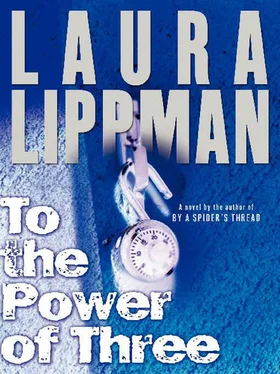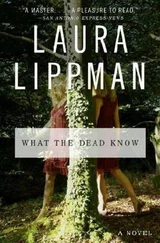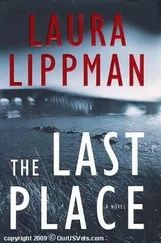“Yeah. I mean, I grabbed for the gun, but I couldn’t reach her.”
“How far away was she?”
“Not far.”
“Three feet? Six feet? Nine feet?”
“I’m not good with distances.”
“If we were to go back there, could you-”
“I don’t want to go back there,” Josie said, feeling dangerously out of control. “Ever.”
“I get that. I get that. And then what? After Kat was shot?”
“Perri shot me in the foot. I made another grab for it, but she’s taller, and she just aimed the gun down and fired. Then she stepped back and shot herself.” It was no effort to cry here, none at all. The only effort was making sure she didn’t choke on the sobs that started. “I didn’t know what to do. My foot hurt, and it was bleeding, and they say you should elevate injuries, so I just sat down where I was, and I put my leg up, and I waited.” She remembered how endless it had seemed, the long minutes before the paramedics arrived, the principal’s voice on the PA system, the distant sounds of the school emptying. “I waited an awfully long time.”
“But when the police came, you wouldn’t unlock the door.”
“I couldn’t. I was scared. I thought if I moved, I might lose too much blood.”
“So it was less scary sitting there with your dead friend and your old friend…well, she must have looked pretty bad.”
“Yes. No. I don’t know. It was all awful. Everything was awful.”
“Detective,” her mother began.
“Sergeant,” the older man corrected. “Sergeant Lenhardt.”
“This interview seems a little rough to me. I’m not sure what you want Josie to say, but you don’t need to make her feel as if she did anything wrong. She’s the victim.”
“Oh, right. Right. I’m sorry, I don’t mean to be harsh. Far from it. The thing is, while this whole shooting is obvious from my department’s point of view, it might not seem quite so obvious in court. So let me just make sure that I’m absolutely clear on this: Perri comes in, says nothing, takes out her gun, shoots Kat-how many times?”
“Once.”
“Right, once. Then she shoots you in the foot while you try to grab the gun, steps back, and…well, we haven’t talked to her doctor, but it’s my understanding it goes up through her jaw. How tall are you, Josie?”
It was a question she hated under any circumstance.
“Five-one.”
“And how tall was Perri? Approximately?”
Her mother answered: “At least five-eight, maybe five-nine. She stooped horribly when she was younger, but she was more comfortable with her height once they started high school.”
“Uh-huh, uh-huh. Josie, did any of the responding officers test you for gun residue?”
“Why would they do that?” Josie’s mother asked.
“Oh, it’s just routine. But no one touched the gun except Perri. Right, Josie? She was the only one who held it.”
“I might have touched it when I tried to grab it from her. Everything happened so fast.”
“But if we wanted to test you, right now, you’d say yes, right? Because you didn’t fire the gun, and a test could prove that even twenty-four hours later. Besides, we’ll need your fingerprints, just in case. I could go out to our car-”
“I don’t feel good,” Josie said, putting her hand beneath the sheet and hugging her stomach, which was beginning to jump around alarmingly. “I’m nauseous and hungry at the same time.”
“Josie, are you…um, menstruating? Or was Kat? Is that why you were in the bathroom?”
“What?”
Josie’s father entered the room, brandishing his cell phone as if it were the Olympic torch. “I all but had to call the CEO at home in Louisville, but they okayed another night’s stay as long as a hospital psychiatrist signs off on it, which I’ve been assured is no problem. When I told him how many television cameras were outside our house-Who are these gentlemen?”
“Police,” her mother said.
“Why are you talking to Josie? I mean, why now? Couldn’t this have waited?”
“She’s the only witness, sir.” Was it Josie’s imagination, or did the sergeant stare at her just then?
“Daddy, I’m tired and it’s hard to remember everything, and they’re asking me questions about my period and stuff.”
“What?”
“It’s not quite-” Sergeant Lenhardt stood, as if he knew it was time to leave. Was he scared of her dad? No one had ever been scared of Josie’s dad. It was kind of cool.
“My daughter has been through enough this weekend,” her father said. “She saw her best friend killed and was shot trying to take the gun away from a girl who was also her friend. Girls who were like sisters to her. This is unconscionable.”
“No one’s implied that your daughter’s lying or that she wasn’t brave,” the sergeant said. “We’re in the difficult position of having to collect information in the expectation of facing a very skilled criminal defense. As I said, your daughter’s the only eyewitness. I mean, who can talk. Who knows what the Kahn girl will say if she recovers?”
Now everyone in the room was silent, everyone and everything, except the younger detective’s pen, hurrying across his pad.
“Does my daughter have to talk to you?”
“Excuse me?”
“Is she required to talk to you? Do citizens have to talk to the police when they’re not charged with anything? Because I am a citizen, Officer, a second-generation American, for your information, so don’t think I can be bullied.”
“Well, it could be argued, Mr. Patel”-he still didn’t have their name quite right, Josie noticed-“that a witness to a murder who doesn’t cooperate is obstructing justice, which is a felony in its own right.”
“In that case-since you’re throwing charges around-I think I’d like my daughter to have a lawyer before she talks to you again.”
“That’s your legal right, Mr. Patel, but it’s not really necessary. Just gunks up the works, makes your neighbors think things are different than they are. No one’s accusing your daughter of anything. We’re simply trying to make sure we’re clear on the details of what happened.”
“I’m very clear. My daughter’s been through the most traumatic experience of her life. She’s seen her best friend killed and suffered a painful injury. If you’d like to talk to her further, I’ll bring her to your offices next week. With a lawyer.”
The sergeant and the detective shuffled out, heads down. Josie almost felt sorry for them-until she caught the look on the older man’s face. He wasn’t the least bit ashamed or cowed by her father’s lecture. He was just pretending.
“Daddy?” she said as soon as the detectives left. “Could I have a snowball? Raspberry? Or fireball, with marsh-a-mallow?”
“Marsh-a-mallow” was an old family joke, Josie’s childhood mangling of the word.
“The hospital might have smoothies or frozen yogurt, but I don’t think-” her mother began.
“Of course you can have a snowball,” her father said. “I’ll ask where the nearest stand is, so it won’t be all juice.”
Josie settled back on her pillows, exhausted. Exhausted, and just a little exhilarated, too.
“Do you want anythingfrom downstairs? Zip’s going to the food court.”
“Did I see a Mama Ilardo’s down there? I love the sausage and pepperoni thick crust.”
Eloise Kahn paused, and Dannon Estes wondered if she was going to suggest a healthier alternative, as she often did when Dannon dined with the Kahns. He couldn’t blame her. Eloise, as she insisted on being called by Perri’s friends, knew that Dannon was troubled by his weight and acne, not to mention his height. There’s nothing you can do about your height, Eloise would tell him in her gentle way, but the first two conditions actually respond to diet and behavior changes, even medication . If he wanted to be thin, if he wanted clear skin, he could have them. He just had to make different choices . It was one of Mrs. Kahn’s favorite words-choices.
Читать дальше












